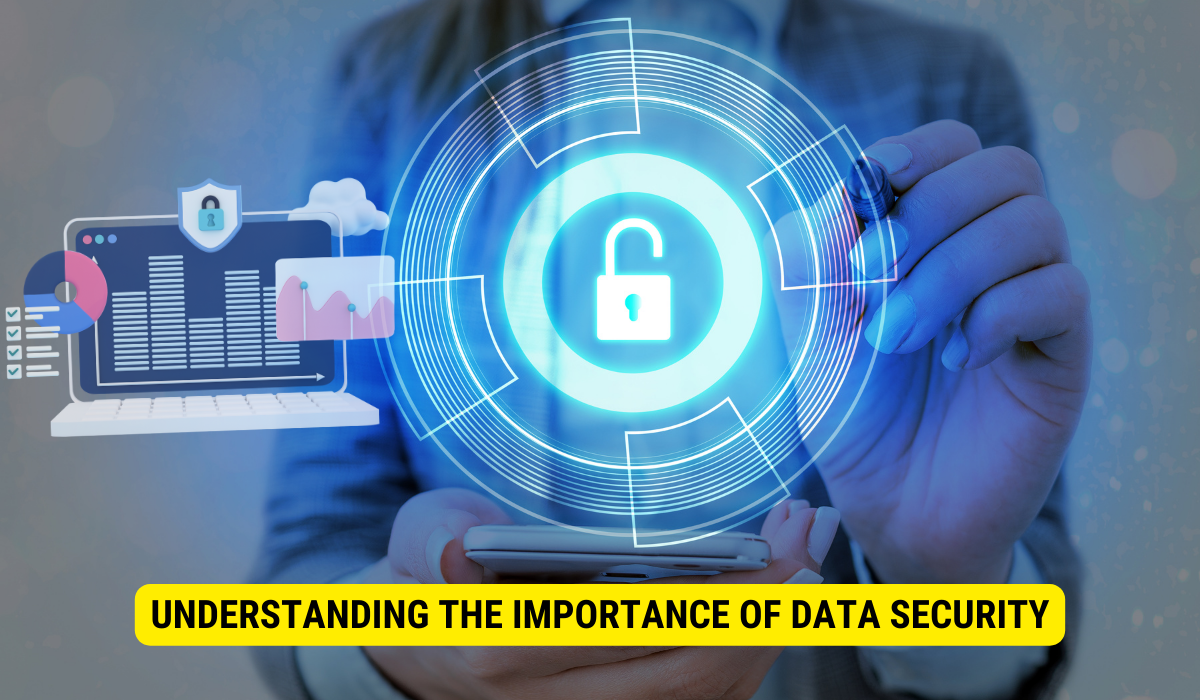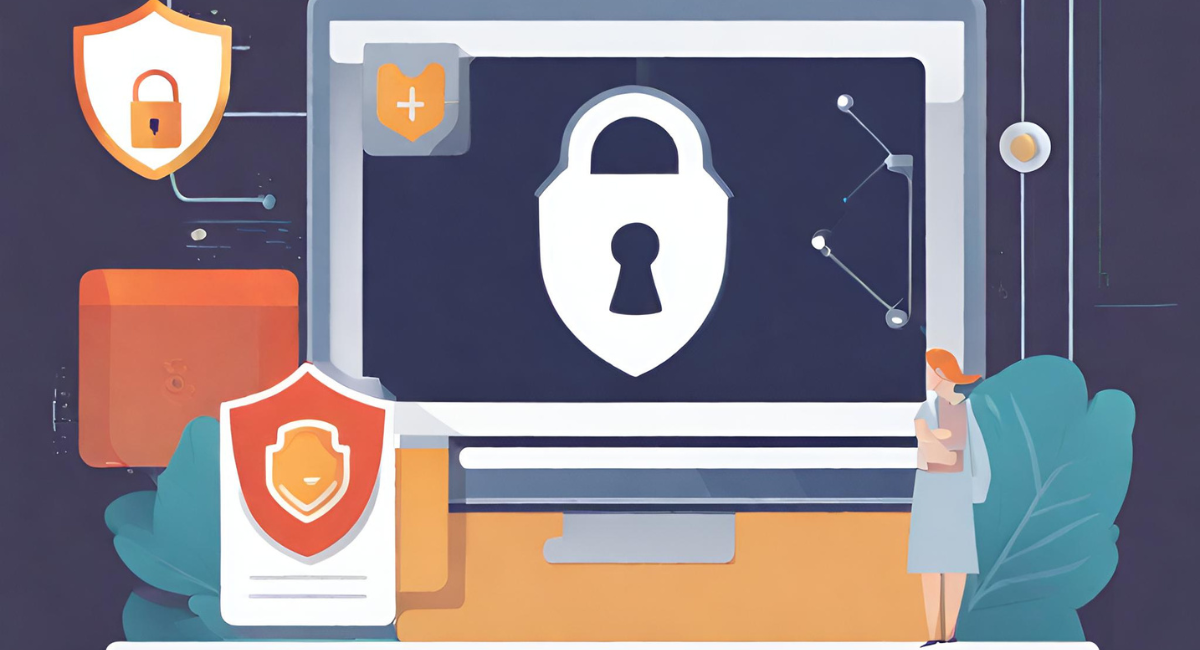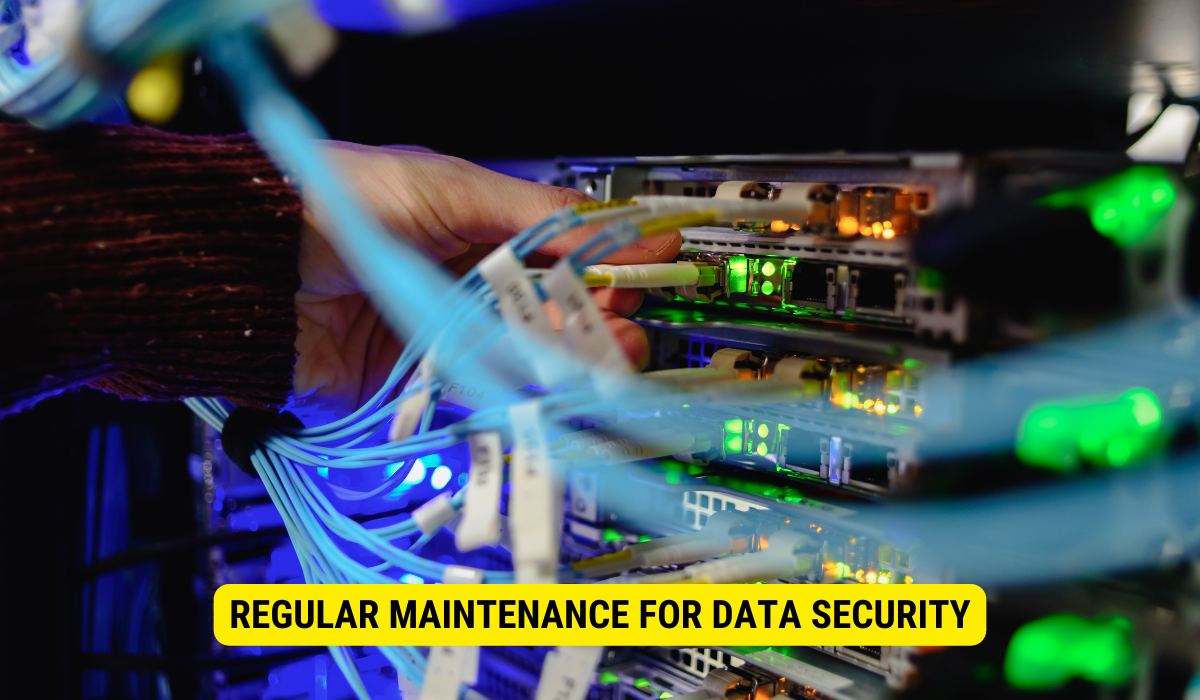To secure data on a portable device, one should employ a combination of measures such as enabling encryption, setting strong passwords, using biometric authentication, updating software regularly, avoiding unsecured Wi-Fi networks, and using security applications like antivirus software and VPNs.
Data security is paramount in today’s digital time of life, where portable devices have become integral to our lives. Whether it’s a smartphone, tablet, or laptop, these devices store a treasure trove of personal and sensitive information. Understanding the importance of data security is the first step toward ensuring the safety of your information.
Understanding the Importance of Data Security
With the increasing reliance on portable devices, the risks associated with unsecured data have also grown exponentially. The potential consequences of a data breach contain identity theft, economic loss, and damage to personal and expert status. Therefore, it is crucial to be aware of the risks of unsecured data and take appropriate measures to protect it.
The Risks of Unsecured Data
One of the significant risks of unsecured data is unauthorized access. When your data is not adequately protected, it becomes vulnerable to hacking attempts, malware infections, and data interception. This can result in sensitive information falling into the wrong hands, leading to potential misuse and exploitation.
Furthermore, unauthorized access to unsecured data can have severe implications for businesses. In addition to the potential financial loss, companies may face legal consequences and damage to their reputation. Customers and clients trust organizations to safeguard their personal information, and any breach of that trust can have long-lasting effects.
Another risk associated with unsecured data is data loss. Whether due to physical damage to the device or accidental removal, losing important data can be devastating. Imagine losing years’ worth of cherished photos or critical work documents. Such scenarios can be avoided by implementing robust data security practices.
Furthermore, data loss can also occur due to natural disasters or technological failures. Organizations may struggle to recover lost data without proper backup systems and data recovery plans, leading to significant operational disruptions.
The Value of Data Privacy
Privacy is a fundamental right in today’s digital society. Protecting your data is not just about securing it from external threats but also ensuring your privacy. Companies and individuals alike must respect the privacy of their clients and users. By prioritizing data privacy, you instill trust and confidence in your digital interactions.
Additionally, data privacy rules, such as the General Data Protection Regulation (GDPR) in the European Union, highlight the importance of protecting personal data. Non-compliance with these rules can result in hefty fines and legal consequences for organizations. Therefore, understanding and adhering to data privacy laws is essential for businesses operating in today’s global landscape.
Additionally, data privacy goes beyond legal requirements. It is about treating individuals’ personal information respectfully and ensuring it is only used for legitimate purposes. By implementing strong data privacy practices, organizations can build stronger relationships with their customers and adoptive a sense of loyalty and trust.
In conclusion, the importance of data security cannot be overstated. Unsecured data poses significant risks, including unauthorized access and data loss. Individuals and administrations can mitigate these risks and protect themselves from potential harm by prioritizing data security and privacy. Implementing robust data security measures and adhering to data privacy regulations are crucial to safeguarding sensitive information and maintaining trust in today’s digital world.
Basic Principles of Data Security

To safeguard your data, following some basic principles of data security is essential. These principles are a foundation for protecting your portable devices from potential threats.
Data security is a critical aspect of our digital lives. With the increasing reliance on portable devices, it becomes crucial to understand and implement measures to protect our valuable information. Let’s delve deeper into some of the fundamental principles of data security.
Encryption and Its Role in Data Protection
Encryption is an effective technique used to secure data on portable devices. Encrypting your data converts it into an illegible format that can only be decrypted with a unique decryption key. This confirms that your data remainders threatened even if your device falls into the wrong hands.
Encryption algorithms use complex mathematical calculations to transform your data into ciphertext, making it virtually impossible for unauthorized individuals to access or decipher. It is a robust shield, safeguarding sensitive information from prying eyes.
Modern encryption methods, such as Advanced Encryption Standard (AES), provide high security. AES, widely adopted as the standard encryption algorithm, offers strong protection against attacks, including brute force and cryptographic analysis.
Implementing encryption on your portable devices adds an extra layer of security, confirming that your data remains confidential, even if your device is lost or stolen.
Password Protection and Authentication
Aside from encryption, implementing password protection and strong authentication measures is paramount. Set strong and unique passwords for your devices and online accounts. Consider using two-factor authentication methods for an added layer of security. These measures significantly reduce the risk of unauthorized access.
When crafting passwords, it becomes vital to incorporate a combination of capital and minuscule characters, numbers, and special symbols. It is essential to refrain from utilizing easily deducible information, such as one’s name or birthdate, as constituent elements of the password. Instead, consider employing a passphrase that is simple for you to recall yet formidable for others to deduce.
Two-factor authentication (2FA) enhances security by mandating users to furnish two distinct forms of identification. Typically, this entails something you are acquainted with (like a password) and something you physically possess (such as a unique code dispatched to your mobile device). Combining these two factors significantly reduces the risk of unauthorized access.
Furthermore, biometric authentication, such as fingerprint or facial recognition, has become increasingly popular as an additional security measure. These methods use unique physical characteristics to verify your identity, making it difficult for unauthorized individuals to access your devices or accounts.
By executing strong passwords and authentication measures, you can confirm that only authorized individuals can access your data, minimizing the risk of data breaches and unauthorized access.
Securing Data on Different Portable Devices
When securing your data on portable devices, it’s important to consider each device’s unique vulnerabilities and security considerations. Let’s dive deeper into some specific measures you can take to ensure the safety of your data on smartphones, tablets, and laptops.
Data Security for Smartphones
Smartphones are highly susceptible to theft and loss due to their small size and portability. Enabling PIN or biometric authentication for unlocking your smartphone data is crucial to protect your device. This adds an extra layer of security, confirming that even if your phone falls into the wrong hands, your data remains inaccessible. Additionally, installing reputable security apps with features like remote data wiping and tracking can provide peace of mind if your smartphone gets lost or stolen.
Furthermore, you must be cautious about the apps you download and the authorizations you grant them. Always stick to trusted sources such as official app stores, and carefully review the permissions requested by each app before granting access. This way, you can minimize the risk of installing malicious apps that may compromise your data.
Protecting Data on Tablets
Tablets often contain vast personal and professional data, making their security a top priority. To ensure the safety of your tablet data’s safety, maintaining a strong device password is crucial. Avoid using easily guessable passwords and opt for a mixture of letters, numbers, and superior characters. Additionally, consider enabling remote tracking and wiping features on your tablet. If your tablet is lost or stolen, you can remotely erase its data to prevent unauthorized access.
Regularly updating your tablet’s operating system and apps is another important step in securing your data. Software updates often hold security patches that address known susceptibilities, so keeping your tablet up to date ensures you have the latest security measures.
Ensuring the Safety of Data on Laptops
Laptops are commonly used for tasks that involve sensitive information, making it crucial to secure them adequately. One of the first steps is to set a strong BIOS password. This password protects your laptop’s basic input/output system, preventing unauthorized access to your device’s hardware settings.
In addition to a BIOS password, using disk encryption is highly recommended. Disk encryption ensures that even if your laptop is stolen, the data on its hard drive remains encrypted and inaccessible without the encryption key. This delivers an extra layer of protection, especially if your laptop contains sensitive or confidential info.
Another important consideration when using laptops is the security of your internet connection. For added security, avoid connecting to unknown or public Wi-Fi networks without a virtual private network (VPN). A VPN encrypts your internet traffic, making it much more difficult for hackers to intercept and access your data.
Lastly, it’s crucial to back up your data regularly. In case of a security breach or hardware disaster, a recent backup ensures you don’t lose important files and information. Consider using cloud storage services or external hard drives to regularly backup your laptop’s data.
By implementing these measures, you can significantly enhance the security of your data on smartphones, tablets, and laptops. Data security is an ongoing process, so staying vigilant and keeping up with the newest security practices and technologies is important.
Advanced-Data Security Measures
Advanced measures can be implemented for users seeking an extra layer of security for their portable devices.
Biometric Authentication for Enhanced Security
Biometric authentication, such as fingerprint or facial acknowledgement, provides a highly secure method of accessing your portable device. Not only is it convenient, but it also adds an extra layer of safeguarding against unauthorized access.
Using VPNs for Secure Connections
A virtual private network (VPN) encrypts your internet traffic and creates a secure connection to the websites and services you use. Using a VPN ensures that your data remains protected even when connected to potentially insecure networks.
Regular Maintenance for Data Security
Ensuring data security is an ongoing process that requires regular maintenance and updates.
The Importance of Regular Software Updates
Regularly updating your device’s operating system, apps, and security software is vital for patching vulnerabilities and addressing known security issues. Often, these updates include essential security fixes that protect your device from the latest threats.
The Role of Antivirus Software in Data Security
Installing reputable antivirus software on your portable devices is crucial for identifying and removing malicious software. Antivirus software scans and monitors your device for potential threats, providing an additional defense against viruses, spyware, and other malicious programs.
Key Takeaways
- Data security on portable devices is paramount, given the personal and sensitive information they store, and potential risks include unauthorized access, data loss, and breaches.
- Encryption is a fundamental method that ensures data remains inaccessible and secure, even if the device falls into the wrong hands.
- Utilizing strong passwords, biometric authentication, and two-factor authentication significantly enhances the security level of portable devices.
- Regularly updating software, apps, and operating systems is vital as it often addresses and patches known security vulnerabilities.
- Advanced security tools such as VPNs and antivirus software protect against potential threats.
FAQs
Why is encryption crucial for data protection on portable devices?
Encryption converts data into an unreadable format, ensuring it remains secure even if unauthorized users lose or access the device.
How do biometric features enhance the security of portable devices?
Biometric features, such as fingerprint or facial acknowledgment, provide a unique and convenient way of authentication, ensuring only the device owner can access the data.
Why are regular software updates important for portable device security?
Software updates often come with patches that address known vulnerabilities, thus protecting the device from the latest threats.
What’s the significance of using VPNs on portable devices?
VPNs encrypt internet traffic, ensuring data remains protected, especially when connected to potentially insecure networks like public Wi-Fi.
How does antivirus software bolster data security on portable devices?
Antivirus software scans and monitors devices for potential threats, offering an added layer of defense against malicious programs.
Conclusion
Securing data on portable devices is essential in today’s digital era. With the right mix of encryption, authentication, regular updates, and advanced security tools, users can ensure their personal and sensitive information remains protected against potential breaches and unauthorized access.
